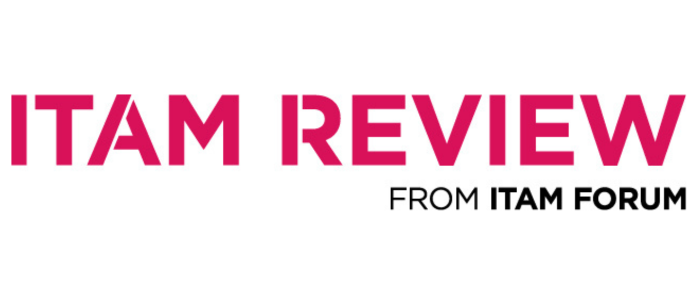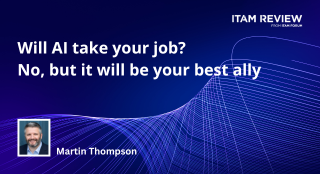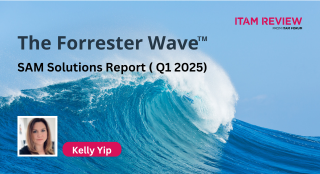Wisdom Unplugged UK 2024: Insights and Findings
The Wisdom Unplugged UK event, held in London on 26 November 2024, brought together a diverse group of ITAM professionals, partners, service providers, and independent consultants. The event focused on practical insights, collaboration, and tackle pressing ITAM challenges, all under the theme: From Underdog to Top Dog—Winning in the ITAM Space in a New Era.
Generously sponsored by Azul and Nitro, two providers offering innovative alternatives to Oracle Java and Adobe Acrobat, the event blended thought leadership, hands-on workshops, and dynamic discussions.
This report captures the outcomes of these sessions. It also offers valuable lessons for those who attended and the wider ITAM community.
Workshop Summaries and Key Insights
Aligning ITAM with Business Priorities
The day began with a workshop on identifying and aligning ITAM efforts with overarching business priorities. Using a recent Flexera report as a starting point, we explored the top IT challenges for 2025:
- Integrating AI across the enterprise: Beyond adoption, this challenge involves ensuring AI aligns with privacy and security standards, is embraced by users, and delivers enterprise-wide benefits.
- Reducing security risks: A perennial priority as cyber threats evolve.
- Cutting IT costs: The core strength of ITAM and consistently a top concern for organisations.
- Adopting new technologies: Organisations seek operational efficiencies through innovation.
- Driving competitive advantage: ITAM can be a strategic enabler of business transformation.
Through group discussion, participants prioritised the following challenges for ITAM:
- Joint first: Reducing IT costs and improving data management – within ITAM and across the enterprise
- Reducing security risks
- Driving innovation for competitive advantage
- Integrating AI
These rankings strongly emphasise cost control and data quality, areas where ITAM has a natural and immediate impact.
Exploring Alternative Suppliers and Cost-Reduction Strategies
We explored how ITAM teams can reduce costs and optimise supplier relationships by considering alternative vendors.
Case in Point: Azul and Nitro exemplifie how organisations can break away from legacy suppliers like Oracle and Adobe. Participants valued not only the competitive pricing (often up to 50% lower) but also the superior customer service and responsiveness offered by these alternatives.
Workshop Highlights
We explored strategies for managing vendors and reducing costs using the 4Rs framework from the Practical ITAM course:
- Remove: Eliminate unused or unnecessary assets.
- Reuse or Refurbish: Maximise the value of existing assets.
- Right-size or Reconfigure: Optimise licences and configurations.
- Renegotiate: Leverage actual usage and requirements or seek alternative suppliers.
Workshop Results
Participants identified suppliers they were considering moving away from, along with the challenges faced:
- SAP: Criticised for its inflexibility and lack of alternatives.
- Adobe: Concerns over high costs, usability, and poor licence management tools.
- Oracle: Noted for complexity and high costs.
- Broadcom: Viewed as unresponsive and overly aggressive in pricing strategies.
Key Barriers to Change
- Technical Dependencies: Deep integrations with existing systems make transitions costly and disruptive.
- Internal Resistance: Stakeholders often perceive switching suppliers risky or unnecessary.
- Sunk Costs: Past investments discourage organisations from pursuing change.
Despite these challenges, participants agreed it’s important to showcase smaller, innovative vendors capable of providing comparable functionality and superior customer service.
Stakeholder Engagement: Building Strong Relationships
Stakeholder engagement emerged as a recurring challenge for ITAM professionals. Participants consistently highlighted difficulties articulating ITAM’s value and building lasting relationships across departments.
Best Practices Discussed
- Mapping the Stakeholder Landscape: Use stakeholder maps to identify key individuals, roles, and priorities.
- Communicating Value: Translate ITAM efforts into measurable outcomes, such as cost savings or risk reduction.
- Customising Communication: Tailor messages and delivery methods to stakeholder preferences.
- Finding Common Ground: Collaborate to align ITAM goals with stakeholder objectives.
- Fostering Trust: Build rapport through consistent engagement and follow-through.
- Educating Stakeholders: Provide training to help stakeholders understand ITAM’s potential impact.
The group also emphasised the importance of using concise, business-oriented language to ensure messages resonate and avoid overwhelming stakeholders with unnecessary complexity.
Trustworthy Data: The Foundation of ITAM Success
In the final workshop, participants dived into the importance of trustworthy data – the cornerstone of ITAM success.
Key Discussion Points
- Accuracy as a Baseline: Trustworthy data underpins compliance, cost savings, and operational efficiency.
- Building Credibility: Accurate data enhances ITAM’s reputation and serves as the first line of defence during audits or regulatory scrutiny.
- Stakeholder Engagement: Customised data insights tailored to stakeholder needs can drive greater collaboration and relevance.
- Tech-Enabled Solutions: Advanced tools and automation are essential for improving data quality and managing exceptions.
Participants discussed techniques for measuring and improving data accuracy, emphasising the need for continuous improvement and robust exception management processes.
Conclusion: Aligning ITAM with Organisational Success
The event demonstrated that ITAM’s relevance and impact hinge on three pillars: aligning with business priorities, fostering strong stakeholder relationships, and leveraging trustworthy data. By focusing on these areas, ITAM professionals can elevate their role, drive value, and ensure alignment with organisational goals.
As we approach 2025, ITAM must embrace innovation, collaboration, and continuous improvement to remain indispensable in a rapidly changing environment.
We encourage participants to reflect on the insights shared and consider how to apply these learnings. For the broader ITAM community, we invite further dialogue to drive collective progress.
Thank you to all attendees and contributors for making this event successful!
Can’t find what you’re looking for?
More from ITAM News & Analysis
-
AI Is Here—And It’s Your Best ITAM Ally, Not Your Replacement
I’ve been asked several times over the last couple of years how AI will impact ITAM and how it will impact jobs. Well, who knows what will actually happen in the future, but my guestimate is ... -
FinOps for SaaS: A Step in the Right Direction, But Will It Work?
The FinOps Foundation is making a bold attempt to get better visibility and control of SaaS applications. This has been driven in part because the vast majority of FinOps teams also manage SaaS to some extent. ... -
The Forrester Wave SAM Solutions Report (Q1 2025)
Forrester, the US based research firm, recently released its latest SAM Solutions Wave report for Q1 2025. The report reflects its research and analysis of nine SAM providers it considers to matter the most, and scores ...
Podcast
ITAM training
Similar Posts
-
AI Is Here—And It’s Your Best ITAM Ally, Not Your Replacement
I’ve been asked several times over the last couple of years how AI will impact ITAM and how it will impact jobs. Well, who knows what will actually happen in the future, but my guestimate is ... -
FinOps for SaaS: A Step in the Right Direction, But Will It Work?
The FinOps Foundation is making a bold attempt to get better visibility and control of SaaS applications. This has been driven in part because the vast majority of FinOps teams also manage SaaS to some extent. ... -
The Forrester Wave SAM Solutions Report (Q1 2025)
Forrester, the US based research firm, recently released its latest SAM Solutions Wave report for Q1 2025. The report reflects its research and analysis of nine SAM providers it considers to matter the most, and scores ... -
Will 'Sustainable IT' be Caught in the Crossfire?
In the days immediately following his inauguration, President Trump and his team declared war on Diversity, Equity, and Inclusion (DEI) programs at the federal level. The impact has been felt far and wide. Many government contractors ...




